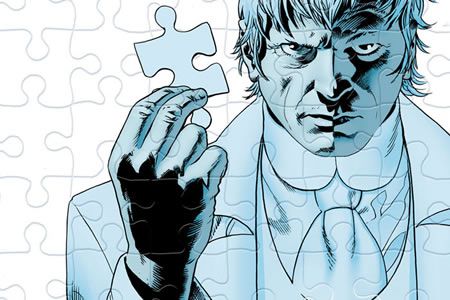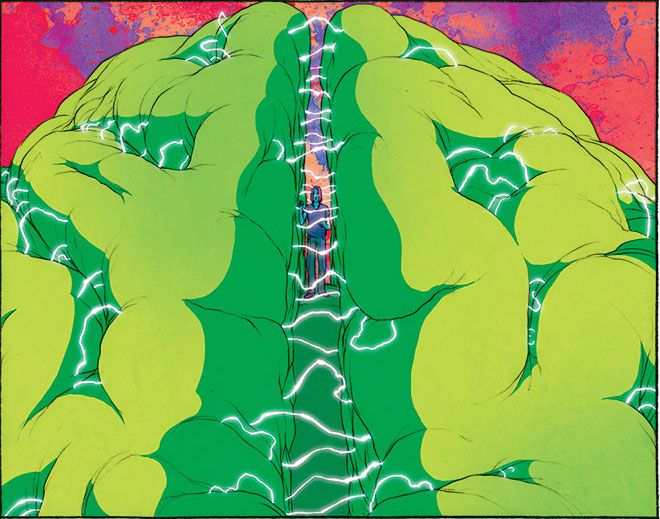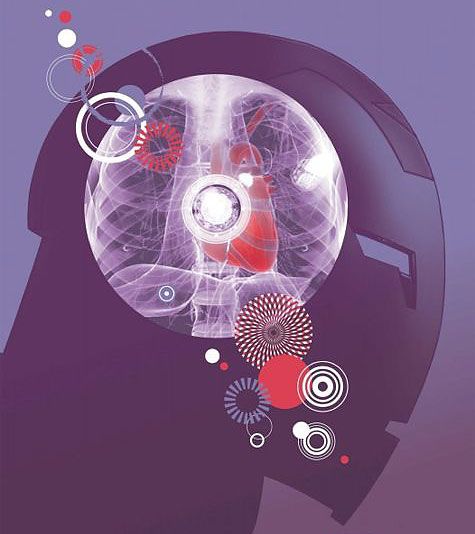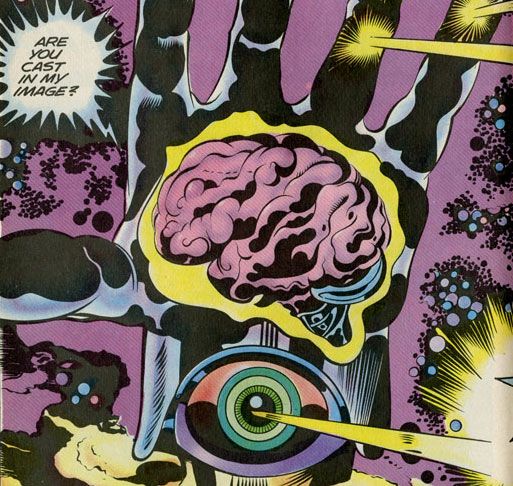Now that comic books are being bought and sold in a digital format, read on websites and downloaded, why hasn't there been a radical rethink of the user-interface? After 20 years of refining websites, online comics haven't changed a bit. We are still looking basically a static image, clumsily scrolling down vertically oriented pages which were designed to be printed but are being read online. I remember doing this on the first websites I saw. Can it be that they were so perfect that they don't require any revision in light of the changing technology and marketplace?
Over the last couple of weeks I've been doing a lot more of the user-experience design than the graphic design. To explain, user-experience design is about designing how people move through and use a digital space, (like a website or a game), while graphic design focuses more on the way that experience looks visually. Obviously there is a lot of crossover and it helps to understand both aspects of design if you're going to work digitally, but they definitely use different parts of my brain. Anyway, getting back to how this relates to comics...
While I was dissecting the myriad ways a person could move through one or two screens of a website, deciding how complex they should be and how to make the entire experience feel more natural and organic through language, button arrangement and layout, I was discussing digital comic books with a colleague. He became quite irate discussing his own experiences trying to download more than one title in a massive crossover event, bemoaning the fact that there isn't a way to buy a parcelled run of event titles without clicking "buy" on each one and then confirming each purchase, ultimately leading to having to click up to 4 times for each title (which can really add up on a large scale crossover event like Brightest Day or Final Crisis, just to name a couple.)
After we spoke I realized that I've never really looked at the user-experience of digital comic book purchasing or (more interestingly) digital comic book reading. Personally, since I don't have an iPad, I hardly read any comics online. I've read a couple online, publishers often send books in a digital format for review and I've bought a couple just to test out the formatting and experience. Each time I've read a comic online which was originally created to be printed, it is abundantly clear that this is a bastardized format. No one has taken the comic book and recreated it to live on computers, it has not yet adapted, and part of this is because at the moment, the industry teeters on the edge of denying that it is happening.
Let's get something out the way. There is no question that people are downloading digital comic books. Wasting time trying to stop this process by making it crappy is just fighting a losing battle. I have to assume that this stubborn resistance to evolving the user-interface is a conscious decision, since every other aspect of our online lives has been dissected and refined in a million different ways, particularly the ones which appeal to a geekier (and thus more tech-friendly audience.) But while making the reading process so lame that is basically off-putting to everyone but the most hardened comic book readers will only slow the download process, not halt it.
Resistance is tragically backwards thinking, people are downloading comic books, shrinking an already dwindling market which can think of nothing more than to fight the tide. Like everything in life, change is inevitable, the medium must evolve to work with the changing interface needs, or die.
- Comics could cost less to download, because of the money saved on printing costs.I think I'm missing something because I don't understand why some publishers charge the same for a digital download of a comic book as they do for a printed version. These digital downloads often aren't formatted for the digital space and there is no reason that they cost so much.
- Legal digital comic downloads could be more widely available.At the moment digital comic books are available on specialty online stores because of exclusive agreements with publishers. Like digital music downloads, comic books could be sold on the same sites which sell the printed versions, like Amazon. It would provide more incentive for people to purchase them, particularly to a world-wide audience who aren't familiar with the comic book specialty store.
- Digital comics need to be sold differently than print comics.Unlike printed matter, it is easy to search the contents of digital files and re-organize them in a multitude of different ways without making any changes to the content. Using this to sell comic books in different sets, packages and bundles could go a long way to making it worth spending the money on a legal download. Bundling comic books based on whether they're part of an event, created by the same author, etc, then selling them en masse with one click would make life a lot easier for a shopper. Using the fact that digital information can be easily cross-referenced and using this to sell more comics in a simpler way just makes sense.
...
With these really basic problems about the industry out the way, (and I'm sure that others can find more that is needed, these are just the most glaring errors), the basic problems associated with the user-interface on digital comic books could begin to be addressed. It is past time to examine the content with an eye towards reformatting comic books so that reading online is a more instinctive experience. Good design is invisible, because it works so well that the content it serves just flows without people being aware of why or how. Right now the act of reading comic books online takes a conscious effort, the reader is always aware of the process of reading. This is a dramatic loss in the experience of losing oneself in the comic book reading and can only be rectified by a new perspective on the design as it applies to the digital space.




